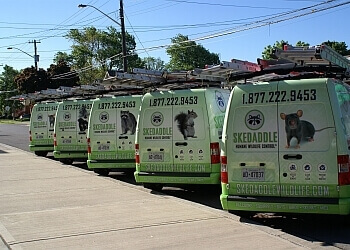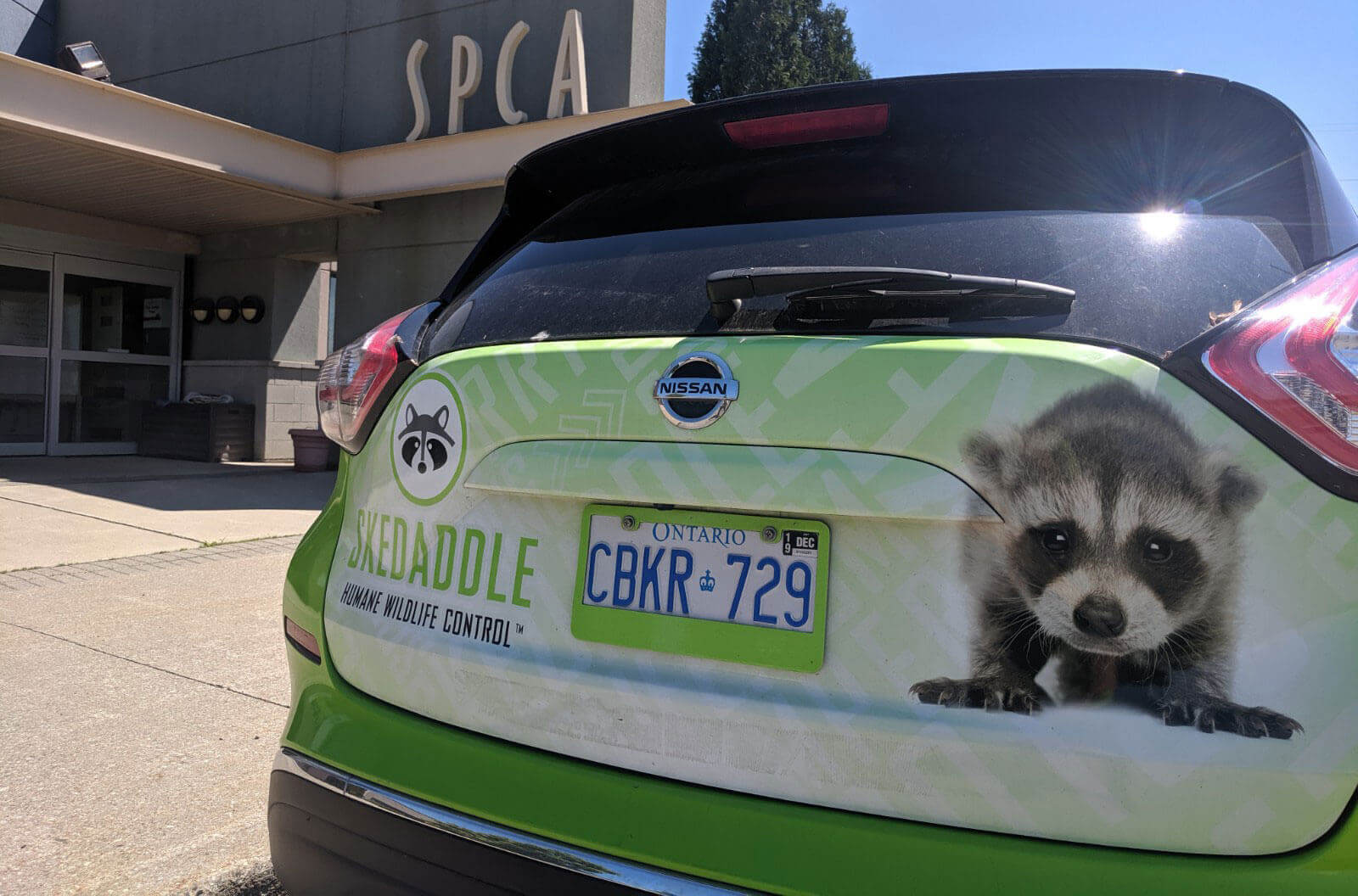

Our toll-free number answers all of your incoming calls with live, English speaking, domestic personnel. We have a fully staffed and dedicated call center working daily from 7:30am to 9:30pm. We will provide you with everything you need to successfully take on your first job when you return to your home location. Training will take place at our headquarters in Hamilton, Ontario where you should expect to learn business basics, accounting, animal removal techniques, the methods for further preventing animal intrusion, safety protocols, sales and marketing, and more. Our workmanship and materials come with a lifetime guarantee.Prior to your comprehensive training, you will be assigned a member of our support staff to guide you through the pre-training and post-opening steps. Once the wildlife have been humanely removed and the entry points are secured our final step is to clean up the mess left behind. We then create a customized removal and prevention plan that’s right for you. We are a truly local company that is proud of its Hamilton roots and the reputation we have established as the area’s number one wildlife control service.Įvery job begins with a detailed inspection of your home to identify the species involved, the entry points used and any damage they may have caused.

When you choose Skedaddle Humane Wildlife Control you get the benefit of our three decades of experience. Sharing your home with wildlife can lead to sleepless nights and unwanted stress. This allows us to spread our knowledge about urban wildlife to the next generation. Our staff also give presentations to children at camps hosted by the Hamilton/Burlington SPCA and the Burlington Humane Society. Every year we participate in their Wiggle Waggle Walkathon giving us the opportunity to educate the community about the importance of humane wildlife removal services and the ways in which people and wildlife can co-exist. We are also proud to be the official provider of pest and wildlife control services for the Hamilton Tiger-Cats and Tim Hortons Field.Īs part of our commitment to community involvement and public education about wildlife, Skedaddle maintains close ties with the Hamilton/Burlington SPCA. We have removed bats from CHCH studios and helped to rescue a baby hawk from the Hamtilton Spectator building. These organizations not only trust us for our opinion they even call us when faced with their own wildlife issues. We’ve been asked to provide expert commentary about wildlife in the city, most notably during Hamilton’s 2015 rabies outbreak. Our established reputation in the city has given us the opportunity to be featured in local media outlets, including the Hamilton Spectator, CHCH TV, and CBC Hamilton.
#SKEDADDLE HUMANE WILDLIFE CONTROL HAMILTON PROFESSIONAL#
To ensure your home is protected our friendly and professional staff will implement customized solutions using hands-on techniques.

The animal, property & the time of year must be taken into consideration. Raccoons, squirrels, skunks, bats, birds and mice have adapted well to the urban landscape and can be unwanted guests in attics, chimneys and sheds. Despite ongoing development, wildlife populations continue to thrive. When it comes to wildlife our local technician team knows hamilton wildlife control. As nocturnal creatures, bats do not like the light and try to avoid it specifically by seeking out dark places to make roosts, such as unused attics. If they were, then shining lights on them would have no effect one way or another. Hamilton Wildlife Removal: Are Bats Afraid Of Lights?Ĭontrary to popular belief, bats are not blind.Unfortunately, rats drinking out of your pool can change your blissful slice of paradise into a place of horror. If you are lucky enough to have a backyard pool, you probably see it as an oasis, a retreat from the troubles of the world around you. Hamilton Wildlife Control: Why Are Rats Drinking Your Pool Water?.Due to a number of factors, including a fungal infection called white-nose syndrome, Little Brown Bat numbers are dwindling. The Little Brown Bat is one of the species that are most likely to roost in buildings, meaning it is one of the bat species that you are likely to encounter in a home or business. Hamilton Wildlife Removal: Where is the Little Brown Bat in Canada?.


 0 kommentar(er)
0 kommentar(er)
